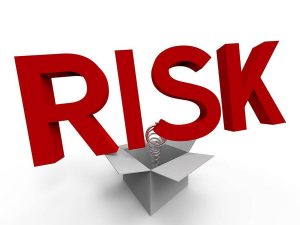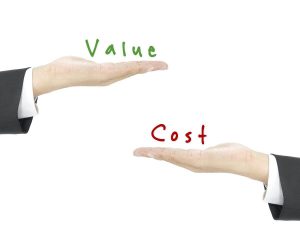I have helped many clients purchase businesses, and probably advised just as many to walk away from deals. What makes a deal good and what are the important factors in evaluating the purchase of a business? If you are considering purchasing a business, your goal should be to minimize the risk that you will overpay for the business.
 Buying a business is an investment decision, no different than buying stock in a publicly traded company. When investing in public company, you consider two factors; how much can you expect to receive in dividends and what do you expect the stock price to be when you sell. Not all stocks pay dividends, but absolutely no sane person would purchase stock in a company if they expected the share price to go down during their period of ownership.
Buying a business is an investment decision, no different than buying stock in a publicly traded company. When investing in public company, you consider two factors; how much can you expect to receive in dividends and what do you expect the stock price to be when you sell. Not all stocks pay dividends, but absolutely no sane person would purchase stock in a company if they expected the share price to go down during their period of ownership.
It is the same when you buy a business. The important factors are how much income will be available for distribution to you (the dividend) and how much will the business be worth when you are ready to sell (the share price). The problem is, there is usually more uncertainty (risk) in a private business than in a public company. As a purchaser, what can you do to understand and minimize the risk?
Consider the risk
Accounting records tell the story of a business, and speak for themselves. If the business does not have good accounting records that go back at least five years, that is risk. The more explanations and stories that are needed to support the accounting records, the greater the risk. I always tell clients that they should only pay for what the seller can prove. As far as we are concerned, if income isn’t reflected on the books and reported on the tax returns, it does not exist.
Concentration risk is another important consideration. If the business is economically dependent upon a single customer or a few customers, a single product supplier, or a few key employees, the future of the business is risky. What would the business look like if the important customer was no longer a customer, the single supplier could no longer supply product, or some key employees went to work for a competitor? Could the business continue profitable operations if one or more of these events occurred?
More than a salary
If you buy a business and the only thing you get is a salary for working there, you are not buying a business, you are buying a job. Take the emotion out of your decision. You would be better off getting a job somewhere else and not putting your investment at risk. However, if you expect the business to grow, allowing you to receive more money in the future, and eventually sell the business for more than you paid, that is a different story and should be your goal.
I have touched on a few of the many things that must be considered in the purchase of a business. Before you buy any business, you should conduct thorough due diligence, which is usually performed by CPAs and attorneys experienced in business purchase and sale transactions. This will help you understand the business, its risks, and provide the information that will allow you to estimate the value of the business.



